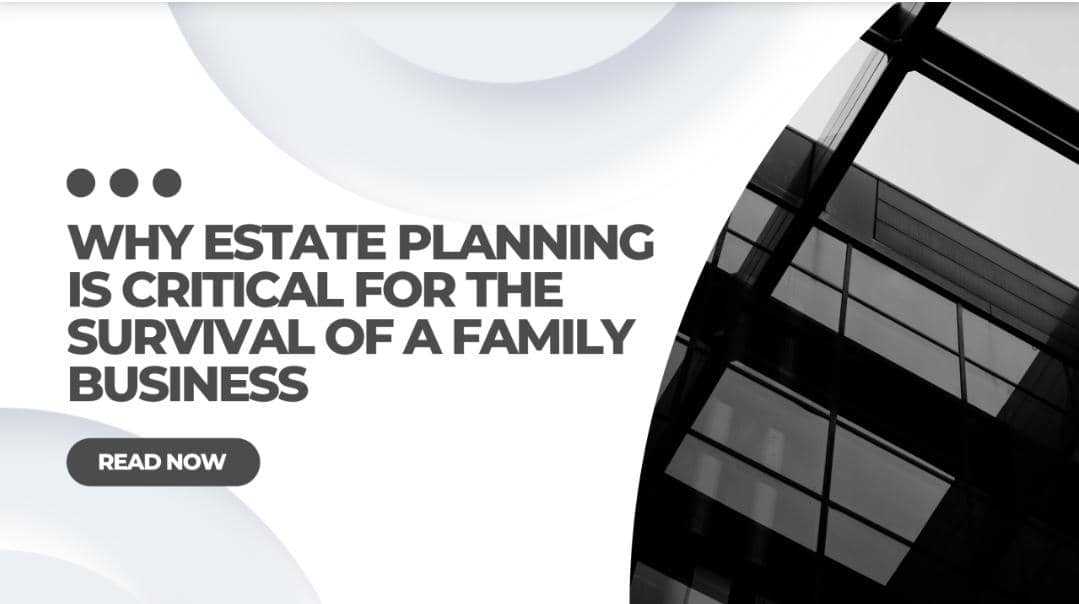
Kelvin Sabao
Family businesses are often built on a foundation of hard work, legacy, and shared vision. However, while many founders are focused on daily operations and growth, they often overlook one critical element: estate planning.
Without it, even the most successful family enterprise can unravel in the face of death, incapacity, or dispute
1. What Is Estate Planning in the Context of Family Business?
Estate planning involves the process of organizing one’s assets and affairs so that, upon death or incapacity, those assets are transferred smoothly and efficiently to beneficiaries.
In a family business context, this means making deliberate decisions about who will inherit ownership, who will manage the business, and how conflicts or taxes will be addressed.
It includes tools such as:
Wills
Trusts
Shareholder agreements
Buy-sell agreements
Powers of attorney
Business continuity plans
2. Avoiding Uncertainty and Conflict
One of the most common risks facing family businesses is disputes among heirs. When a founder passes away without clear instructions, children or relatives may fight over control, direction, or ownership of the business.
Estate planning eliminates uncertainty by specifying exactly who gets what, who leads, and how decisions should be made.
A well-drafted estate plan can:
Prevent sibling rivalry
Avoid costly legal disputes
Protect the interests of both active and non-active family members
3. Ensuring Business Continuity
Without a succession plan, even a profitable and stable business may falter when a key figure dies or becomes incapacitated. A strategic estate plan identifies and prepares a successor, ensuring that there is no leadership vacuum.
Related Stories
This planning can also integrate:
Training or mentorship programs for the next generation
Governance structures like a board or advisory council
Contingency plans for temporary incapacity
4. Protecting Assets and Preserving Value
Estate planning can help reduce exposure to estate taxes, capital gains, and creditor claims. For instance, by placing business shares in a family trust, founders can legally limit the tax burden while maintaining control during their lifetime.
5. Catering to Diverse Family Needs
Not all heirs are equally interested or capable of running a business. Estate planning allows for a tailored approach: some children can inherit management roles, while others can benefit from passive income or alternative assets.
This avoids forcing uninterested heirs into operational roles that can hurt the business.
6. Legacy and Values Preservation
For many family business owners, the business is more than an asset—it’s a legacy. Estate planning helps ensure that this legacy is protected and passed on in a manner that reflects the founder’s vision and values.
This can be embedded in:
A family constitution
Last Will & Testament or legacy letters
Charitable trusts or philanthropic arms
Conclusion
In the absence of proper estate planning, the death or incapacity of a founder can spell disaster for a family business. With a well-thought-out plan, however, families can preserve both wealth and unity, and ensure that their business continues to thrive for generations to come.
Whether your business is a farm, retail shop, legal practice, or multinational operation—estate planning is not optional. It’s a necessity.




















Leave Comments